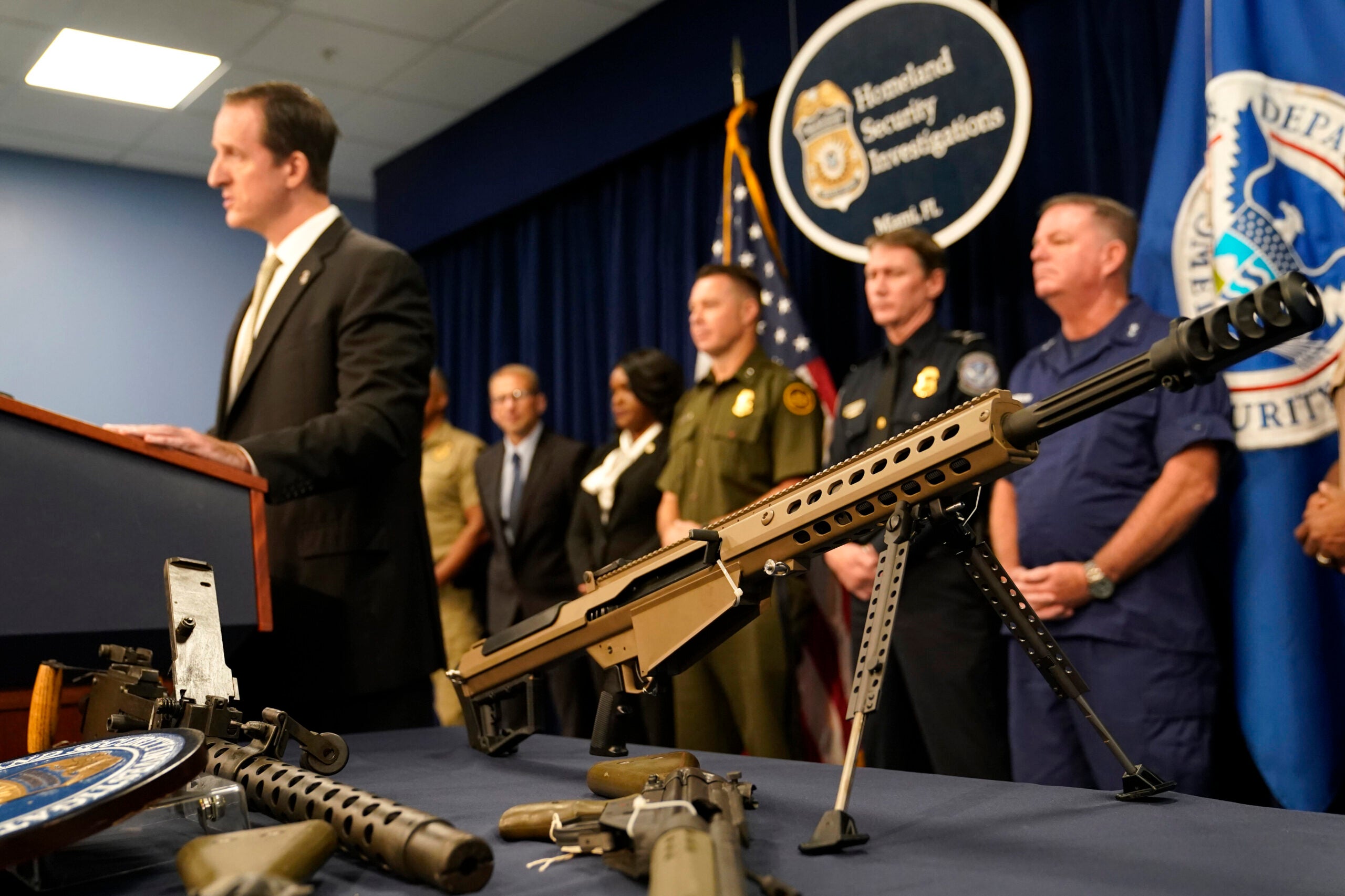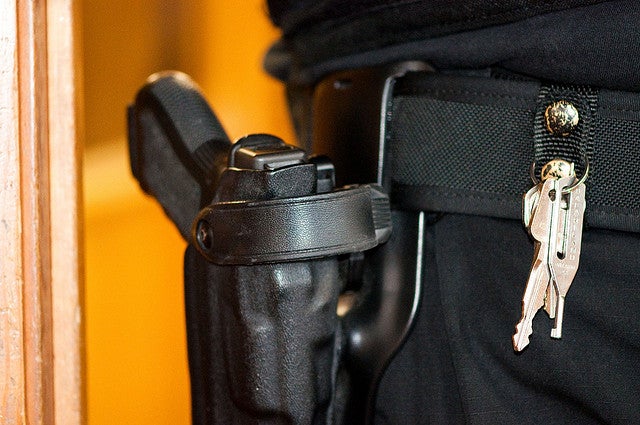A recent investigation from Reuters details how a family in Racine is accused of belonging to a gun trafficking ring that purchased hundreds of thousands of dollars’ worth of guns and then brought them to a Mexican drug cartel.
The investigation, released this month, used a federal indictment to shed light on how the alleged criminal scheme operated in Racine and connected to the Cartel Jalisco Nueva Generacion. The federal Bureau of Alcohol, Tobacco, Firearms and Explosives found that a Racine family with ties to Jalisco “enlisted friends and relatives who bought guns on their behalf in Racine and transported them to California and south across the border, according to an indictment from Wisconsin’s Eastern District Court.”
“The cartel exploited permissive federal and state-level gun control rules to buy some of the most powerful weapons available to American civilians,” journalist Sarah Kinosian writes in the report.
News with a little more humanity
WPR’s “Wisconsin Today” newsletter keeps you connected to the state you love without feeling overwhelmed. No paywall. No agenda. No corporate filter.
These include .50 caliber semi-automatic rifles. The manufacturer of these weapons, which are considered military-grade, is Barrett, which led the federal Bureau of Alcohol, Tobacco and Firearms to nickname the Wisconsin case “Grin and Barrett,” Kinosian writes.
In a recent appearance on WPR’s “The Morning Show,” Kinosian said the cartel relied on permissive gun laws in the U.S.
“Across the United States, one of the sources said to me, owning six .50 caliber (rifles) is no different than owning six toasters,” Kinosian said.
Racine was a key part of the cartel’s network, but it included buyers in more than a dozen states, according to the report. The investigation charged Mexican citizen Jesus Cisneros with leading the trafficking ring, and Wisconsin’s Victor Cobian and six other accomplices with carrying out many of the purchases. Kinosian reports that Cobian denied to Reuters that he was involved in the scheme. He has pleaded not guilty.
Investigators only learned of the alleged scheme when Mexican police recovered a single .50 caliber rifle in a 2018 raid. Kinosian characterizes the guns as “among the most powerful weapons civilians can buy in the United States through licensed dealers.” They cost about $9,000 each. A favorite of Mexican drug cartels, they have been used to kill police officers, including in a 2015 incident in which cartels shot down a police helicopter.
One of the dealers that legally sold the weapons, according to the report, was Shooters’ Sports Center in Caledonia. Employees told Reuters the store typically sold one Barrett .50 caliber per year. The federal investigation alleges that in 2018, members of the trafficking ring bought four of them in six months from the store.
A 2013 study from the University of San Diego estimated that some 250,000 guns each year are illegally brought across the border from the U.S. into Mexico. The Mexican government has sought $10 billion in a lawsuit against U.S. gun manufacturers it says bear some responsibility for that nation’s cartel violence. The Mexican government’s estimate is twice that of the 2013 study; it claims 500,000 guns are trafficked each year from the U.S. into Mexico.
Wisconsin Public Radio, © Copyright 2026, Board of Regents of the University of Wisconsin System and Wisconsin Educational Communications Board.






